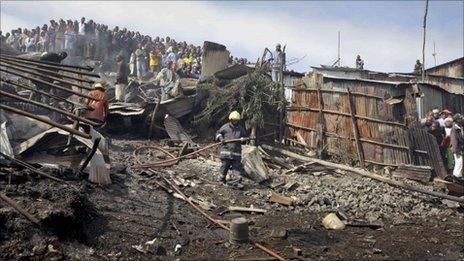Lang'ata fire: 'Not enough water' to tackle Kenya blaze
- Published
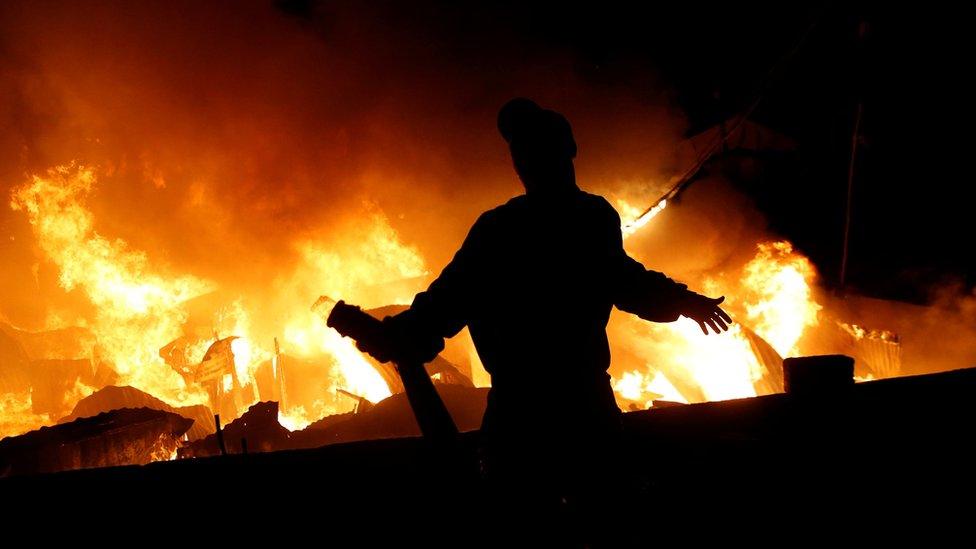
A man reacts as the water runs out of water as he fights a fire
Survivors of the fire which tore through a Kenyan slum leaving four dead have described the battle to save their homes as "like fighting in hell".
Residents used sewage water in a desperate attempt to douse the flames which had engulfed the houses in the Lang'ata area of the capital, Nairobi.
The MP for the area, Nixon Korir, said fire engines which turned up to help did not have enough water.
The fire was finally out by 06:00 local time (03:00 GMT) on Monday.
Pictures show how people tried their best to put out the fire with anything they had to hand.
Maryam Mohamed, who lost everything, told the BBC: ''It was like fighting in hell, it was like hell, this is the toughest day of my life but I put my God first, who will provide for me.''
Police have begun an investigation into the blaze, which began at 20:00 local time on Sunday and continued for 10 hours.
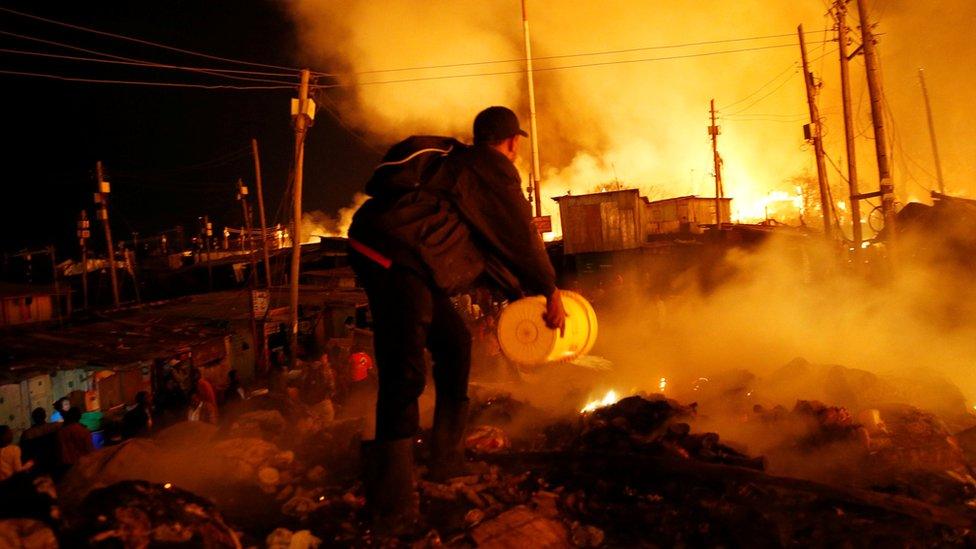
It is feared that more bodies may be found as they comb through the wreckage of the homes.
Meanwhile, those who survived - thought to amount to some 6,000 people - are coming to terms with starting again.
''I don't see I can live here any more, I have lived here for 17 years and I have never seen anything like this," Titus Mutua told the BBC.
"I don't know where my children are, my wife says she took them to her friends, I have nowhere to sleep - I am just sleeping under a tree.''
Kenya's Deputy President William Ruto has said that the government will spend $490,000 (£347,000) to help victims.
However, it is not clear whether the offer is enough to quell anger over the perceived failings of the fire service, which has spilled over from the settlement itself to social media, where people are questioning where the government's priorities lie.

'A spectacular failure'
Ferdinand Omondi, BBC Africa, Nairobi
Just three months ago, the picture of a beaming President Uhuru Kenyatta , testing the hosepipe of a new fire engine, flanked by Nairobi Governor Mike "Sonko" Mbuvi, was shared widely as Kenyans hoped the days of the country's inadequate disaster preparedness were finally over.
The governor shared the picture on Twitter last October, external, when he said the newly-elected Nairobi County government had acquired 24 new fire engines. Mr Mbuvi tweeted: "This equipment will go a long way in curbing fire situations that have been witnessed in the recent past."
But in Nairobi's first major fire since then, the fire department failed terribly. But why?
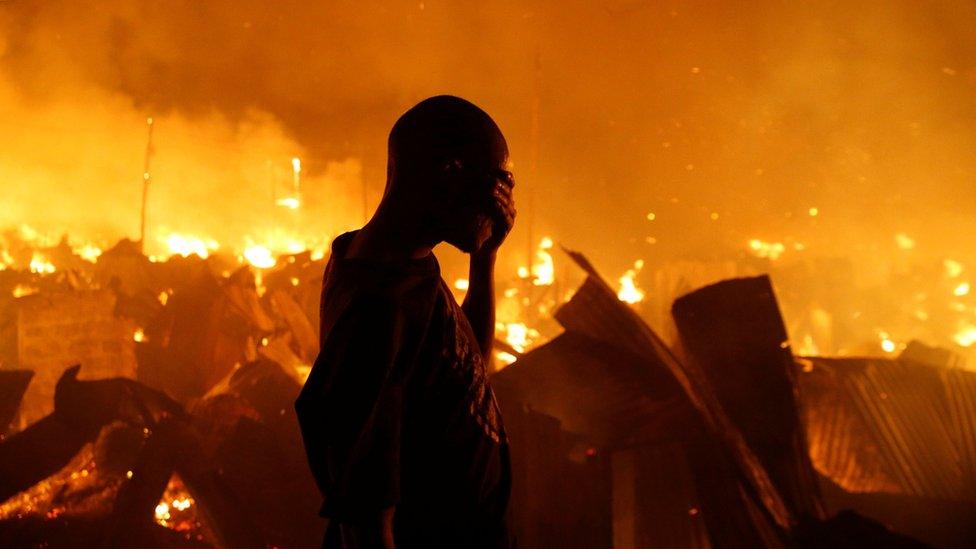
Not for the first time, the fire engines ran out of water. And when they needed to refill, they had to make a 20km (12 mile) round trip from the Kijiji settlement back to the city centre.
Pius Masai, chairman of the National Disaster Management Committee, said the area has no fire hydrants. Residents desperately scooped up any liquids they could lay their hands on, including a sewer, but they could only do so much.
Only four or fire engines were deployed. That was too small a number for the inferno, which reportedly left nearly 6,000 people homeless.
Questions will be raised about why the authorities did not send more engines to the scene. Mr Masai was caught on camera appealing for more engines.
The military did not help, even though the Langata Barracks is located barely a kilometre from the area. The Kenyan military usually helps civilians out in times of disaster. It is unclear why they could not deploy this time, when they could literally see the fire from their gate.
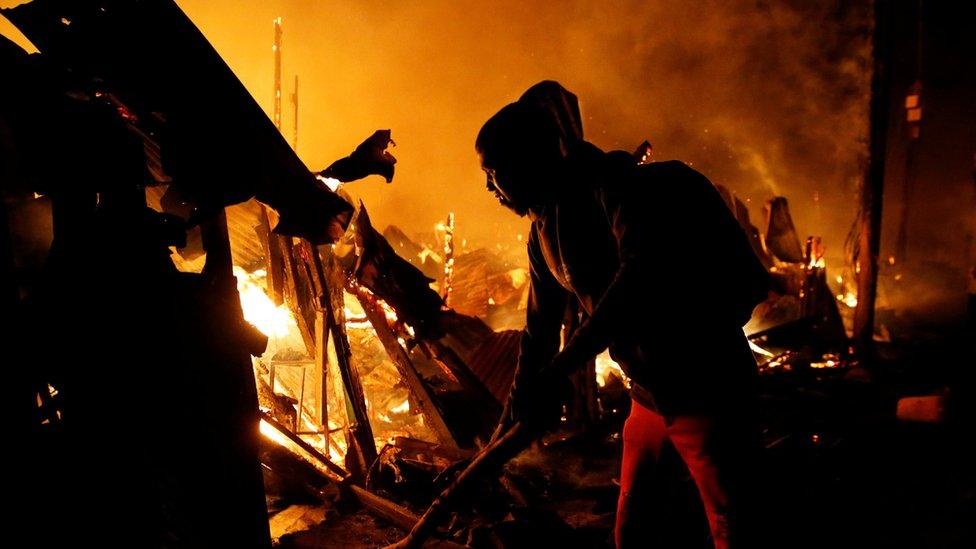
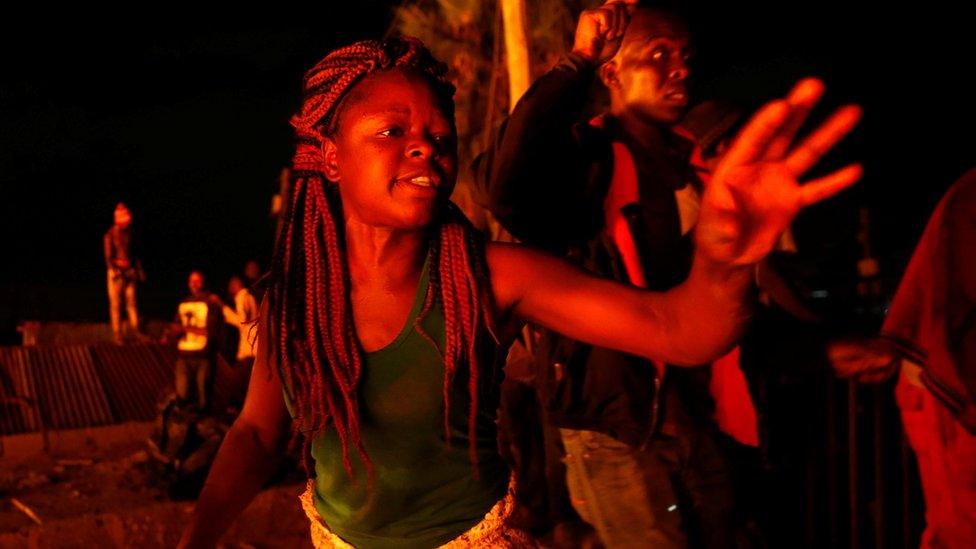
Informal settlements like Kijiji suffer from a lack of planning, with crammed houses and no through ways. The fire engines could not navigate beyond the edges of the settlement. This has always been an issue when fires occur. But city planners have never really followed up on the matter.
Police are investigating the cause of the fire.
But Kenyans are furious that once again, a disaster has caught the authorities flat-footed. Some are cynically observing that during the post-election chaos late last year, dozens of police water cannons were used to disperse demonstrators - and they never ran out of water.
The Nairobi governor has many questions to answer. He hasn't commented yet.
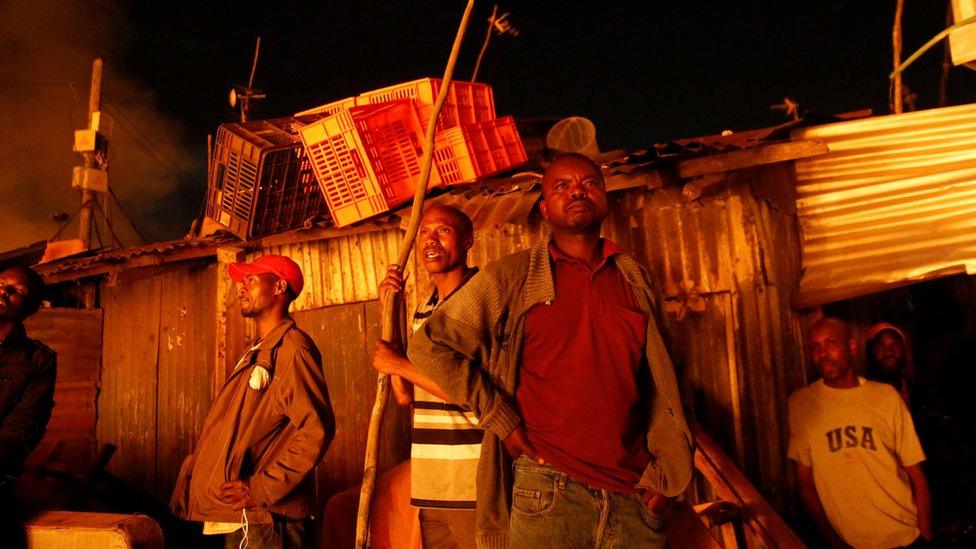
- Published19 January 2018

- Published10 January 2013
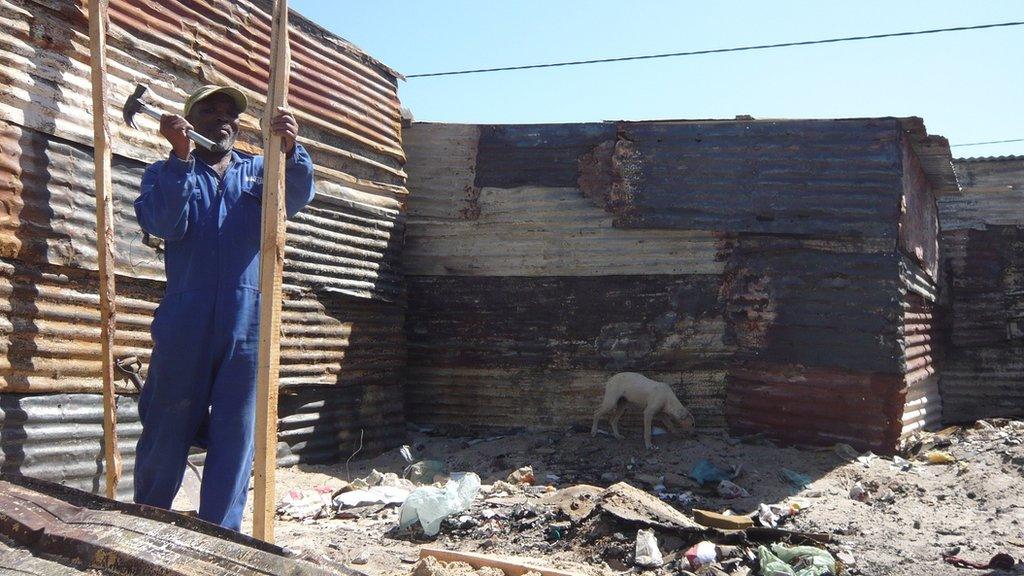
- Published12 September 2011
